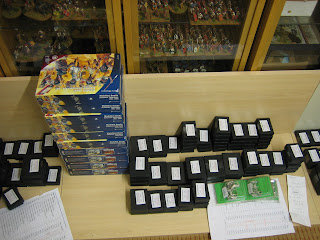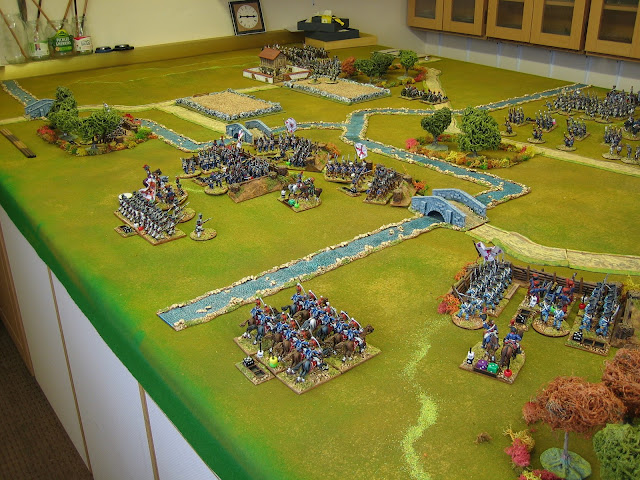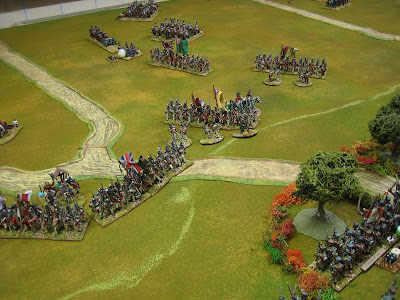Before the next campaign report, I thought I'd slip in a bit of blog news. The Spanish Army (Peninsular Project - Stage 2) is done and dusted, including an extra battery of artillery and a unit of Husares Espanoles added after the initial orders. The Spanish Army now numbers 715 men and the whole collection numbers 2,699 men - making it my biggest collection to date.
Except for some WW2 Western Desert stuff, the lead pile was exhausted. I say "was exhausted" because that state of affairs ended, following a trip to the Fiasco show in Leeds, after purchasing a bit of stuff for my next project. The decision has been made - it's going to be the early campaigns in the Sudan.
The first order covers most of the Mahdist's required, and the bulk of the British for the First and Second Suakin Campaigns. The Egyptian stuff for the early period will be the next purchase and will be stage two of this new project. I'll do a roster at a later date.
Here is the order of Perry Miniatures, at home and laid out for checking. They were supplied by Dave Thomas. For reasons beyond Dave's control the order was shy 27 packs but 10 boxes of plastic and 198 packs of metal will be enough to be getting on with. Dave will post me the 27 absentees when they come in. Doing business with Dave is always a pleasure - every pack he said was there was there and I was so glad they mostly came in boxes rather than much bulkier blister packs. The order was quite compact but, blimey it was heavy (at a guess, something like 20kg).This is the British pile. It represents about 14 units plus artillery and command. The infantry will be in battalions of 36 or 48 figures - with company stands of 6 figures. This makes figure scale for the British roughly 1:15.
This is the Mahdist pile. I've decided, possibly against my better judgement, to buy some plastic Mahdists to save on cost: They will mix in roughly 50%-50%. There are about 900 Mahdists in total (I think?).
The order also included a few additions for my early Crusades collection: Mostly comprising Armenians and Arab foot which I've been meaning to add for years - indeed, I've had a box of 40+ home made Arab glaives (to convert two units of Perry Arab militia spearmen into Adhath glaivemen) kicking around for about two years.
Packs decanted, by unit or figure type, into plastic bags in order to save storage space. I had to carry this stuff about half a mile (to the bus station) and it got heavier and heavier with every step. I'm definitely getting too old for this lark.




























